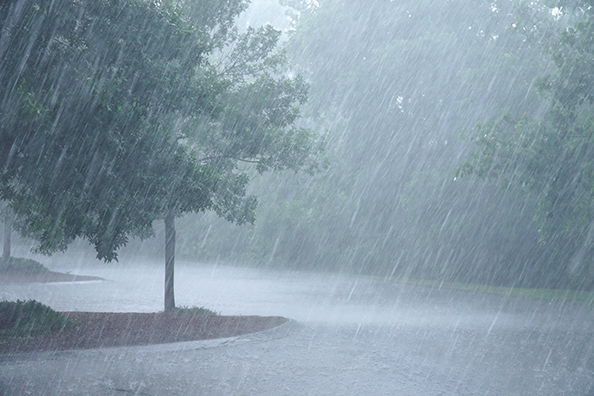The majority of California has been under atmospheric attack since Sunday, February 4, 2024, with a massive storm making its way from the northern part of the state to the southern — with some areas seeing wind gusts up to 92 miles per hour. Conditions in some regions are so bad that on February 4, Governor Gavin Newsom declared a state of emergency for eight Southern California counties.
And more is expected: Southern California is under a flood watch through 4 p.m. Tuesday, according to the National Weather Service, which also issued a Winter Storm Warning through 4 a.m. Tuesday in parts of Northern California.
As these storms bring power outages, downed trees and flooding to many Californians, employers must keep certain things in mind.
For starters, the time an employer may require an hourly/nonexempt employee to wait for work (while waiting for power to come back without excusing employees, for example) must be paid. Or, if your workplace cannot open due to such an event, California’s reporting time pay requirements kick in, meaning that if you send an employee home before they’ve worked at least half their shift, you may be required to pay them for half of their expected shift.
For exempt employees during emergency conditions, this general rule applies: If an exempt employee does any work in a week, they get paid for the week. If an act of God occurs, and the employee is ready and willing to work, but is unable to for some reason, the best practice is to pay the employee. If an employer doesn’t believe the employee should be paid and wants to exercise an exception that allows for not paying employees affected by the storm, the employer should consult with legal counsel before doing so.
In addition, some unique leaves of absence issues may pop up during emergency conditions, such as for volunteer civil service (volunteer firefighters, reserve peace officers, etc.), which requires that you must allow volunteer firefighters and other emergency personnel to take time off for certain purposes — although you are not required to pay for the leave. School emergency leave under the school and child care activity leave law allows a parent (or any sort of guardian who stands in loco parentis) who works for an employer with 25 employees or more to leave work due to an emergency, up to 40 hours each year.
Employers also have a general duty to ensure the health and safety of their workforce, and if conditions at the workplace increase employees’ risk of harm, they have the right to refuse work, without repercussions.
In fact, an employer can’t punish an employee if they leave work, or refuse to report to work, if they have a reasonable belief that work is unsafe due to an emergency condition, which the law defines as a disaster or extreme peril to the safety of people or property at the workplace caused by natural forces or by a criminal act (such as an active shooter). The law requests employees to give advanced notice when feasible before failing to report to or leave work, letting employees use their judgment based off foreseeability of the emergency.
Employers are also prohibited from preventing any employee from accessing their mobile device or other communications device to get emergency assistance, assess a situation’s safety or communicate with someone to verify their safety.
Additionally, effective January 1, 2024, employers are required to note on the Wage Theft Notice the existence of a federal or state emergency or disaster declaration applicable to the county or counties where the employee is to be employed, and that was issued within 30 days before the employee’s first day of employment, which may affect their health and safety during their employment.
And finally, two important employment benefits exist during emergency conditions:
- First, during a declared emergency by the governor, the one-week waiting period for unemployment insurance benefits is waived.
- Second, under certain disaster-related circumstances, employers have a longer time to file certain items with the Employment Development Department (EDD), such as payroll taxes and other reports, as noted on the EDD’s website.
CalChamber members can find more information on Reporting Time Pay, Volunteer Civil Service Leave and School and Child Care Activity Leave in the HR Library. Not a member? Learn how to power your business with a CalChamber membership.





